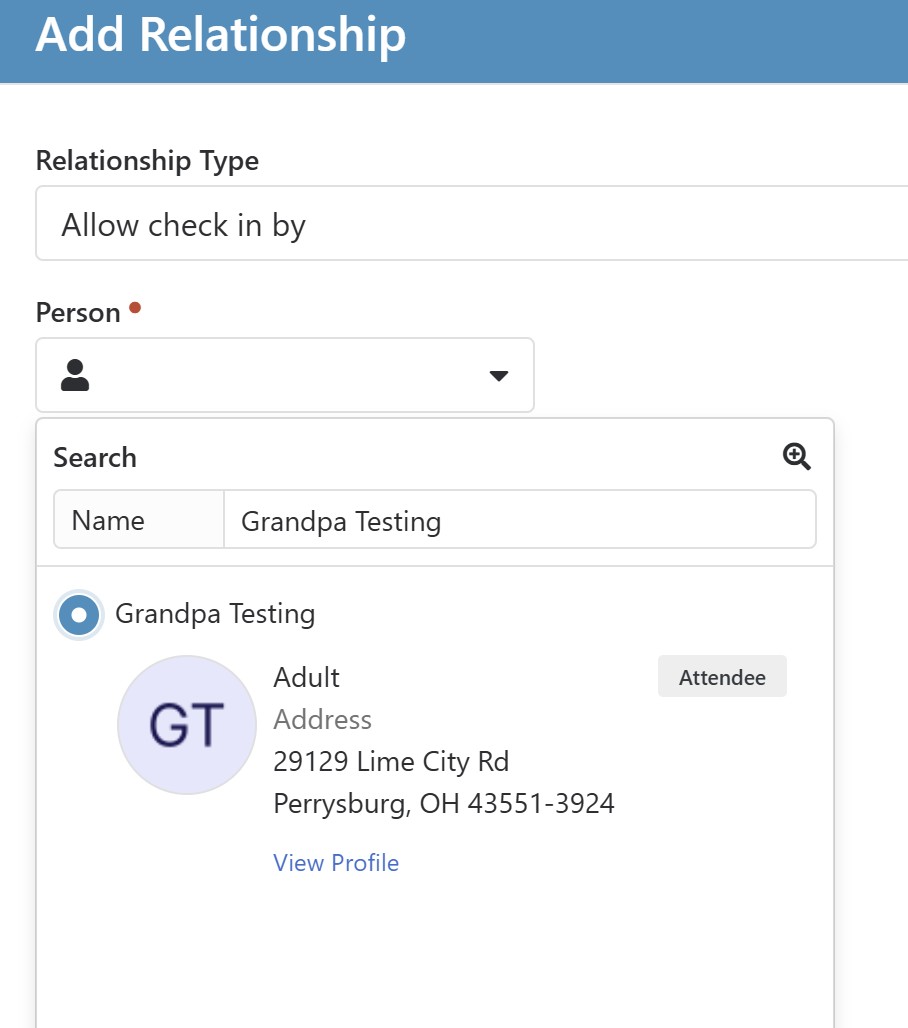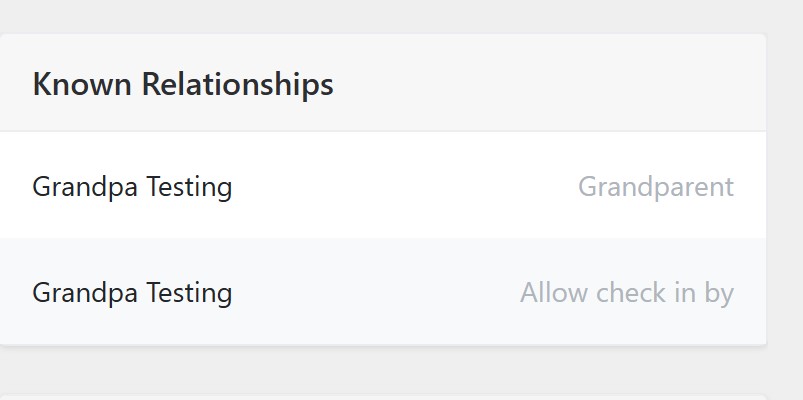✅ What Are Known Relationships?
Known Relationships in Rock define how individuals are connected.
Here are the types of Known Relationships we typically use in Rock:
-
- Allow Check-in By / Can Check-in
- Parent / Child
- Step Parent / Step Child
- Foster Parent / Foster Child
- Grandparent / Grandchild
- Sibling
- Previous Spouse
- Business / Business Contact
- Invited / Invited By
❤️ Why Known Relationships Matter
Known Relationships aren’t just about logistics—they help us better understand and serve our families.
- Contextual Care: Knowing who plays a role in a child’s life—whether it’s a grandparent, mentor, or caregiver—helps staff and volunteers engage more meaningfully.
- Safety & Trust: Clear relationship mapping ensures that only trusted individuals have check-in privileges, reinforcing a secure environment.
- Ministry Insight: These connections reveal support networks and family dynamics that can guide pastoral care, outreach, and discipleship.
- Data Integrity: Accurate relationships improve reporting, communication, and follow-up, especially when families span multiple households.
🔐 Adding A Known Relationship
To let someone check in a child:
- Go to the child’s Person Profile.
- Click the [+] on the Known Relationship block.

- Choose Allow Check-in By.
- Select the person who should have check-in rights.

- Click Save.

By granting check-in access the child will show as a member of that person’s family when they check-in at one of our kiosks or online. Can check-in relationships should be used any time someone should have check-in rights to someone not in their immediate family. These known relationships will also show when paging someone from check-in manager.
